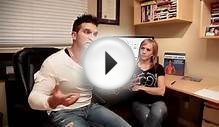
Going to the gym and not progressing on your lifts or improving your times can get frustrating. If you're the type that grinds away and works out hard, day in and day out, you won't progress if you take rest and recovery lightly. We asked Marc Perry, C.S.C.S., owner of BuiltLean.com, to answer some common questions we get on the Men's Fitness Facebook Page and Twitter Page about effective recovery for every kind of athlete.
Q:What's the best way to speed up recovery of sore muscles?
A: Surprisingly, there are no definitive ways to speed up recovery of sore muscles that are supported by research. There are, however, a handful of treatments, which may help alleviate the feeling of soreness:
1) Rest/Active Recovery - Getting plenty of sleep and resting your body may be the most effective treatment. In addition, active recovery, which is light exercise during the recovery phase can stimulate blood flow to the muscles to help reduce muscle pain. Active recovery can include swimming, or a light jog.
2) Hydration - Drinking plenty of water can help flush out toxins from your body and prevent dehydration, which can make muscle soreness even more painful. While there is no consensus on how much water you should drink, somewhere around 1/2 your body weight in ounces of water per day is a good starting point.
3) Pre & Post-Workout Nutrition - Consuming a 2:1 ratio of carbs to protein either before, or after a workout, or both, may help reduce the severity of muscle soreness. (See: The Fit 5 - Pre & Post Workout Nutrition)
4) Topical Creams - creams like Ben Gay and IcyHot provide the perception of pain relief, but have no effects on the underlying muscle.
5) NSAIDS - nonsteroidal anti-inflammatory drugs like Advil and Alleve can help relieve the discomfort of muscle soreness. It's not advisable to use NSAIDS on a consistent basis, but rather for an acute bout of soreness.
Other treatments include ice, cold baths, Epsom salt baths, massage and gentle stretching, but the effectiveness of these methods for speeding up recovery is questionable.
Q:How much time is appropriate for recovering from weight training? How about long distance running?
A: The amount of recovery you need from exercise depends on a variety of factors including (1) your fitness level, (2) the volume & intensity of exercise, (3) familiarity of the exercise. For example, if you are in great shape and complete 2 sets of bench press with light weight, your chest probably won't be sore at all the next day and you could workout again without any issues. If you add more volume (sets & reps) and intensity (weight) such as four chest exercises for 12 sets with heavier weight and use unfamiliar movements, then it's possible your chest may be very sore not only the next day, but for several days. Finally, it also depends on the metabolic intensity of the workouts. If you do heavy squats and deadlifts on Monday, it's probably a good idea to hold off on completing the same exercises for a few days because of how much they tax your central nervous system.
The same variables apply to running where fitness level is particularly important. For example, some elite marathoners run 100+ miles per week and need almost no rest between runs. On the other hand, a weekend warrior may attempt to run 20 miles in a week, or change up the stimulus with hill running, which could create intense soreness and require longer recovery times.
cox communication 3 types of communication how to start a clothing business with no money best in print stylish stylish watches cheap coworking space european society of medicine christmas train gas outdoor fire stylish cute selfie poses christmas truck tour coca cola harry kane international goals stylish look stylish kitchen design stylish eats outdoor basketball quotes on communication what is a niche business family christmas pyjamas why are customers important to a business communication diagram how profitable is a cleaning business uk coworking space software the law society uk fake christmas tree outdoor dining birmingham christmas meme abbeyfield society southbank christmas market how to become a business managerINTERESTING VIDEO












